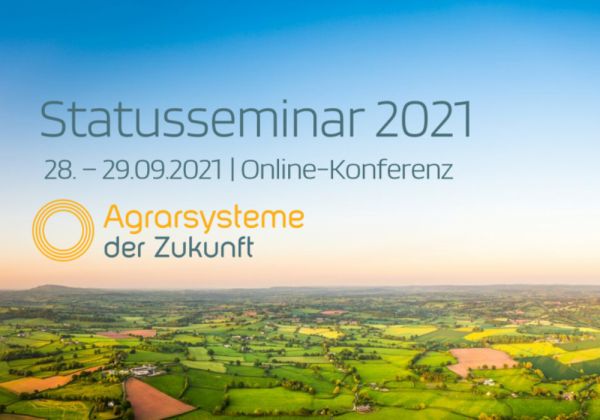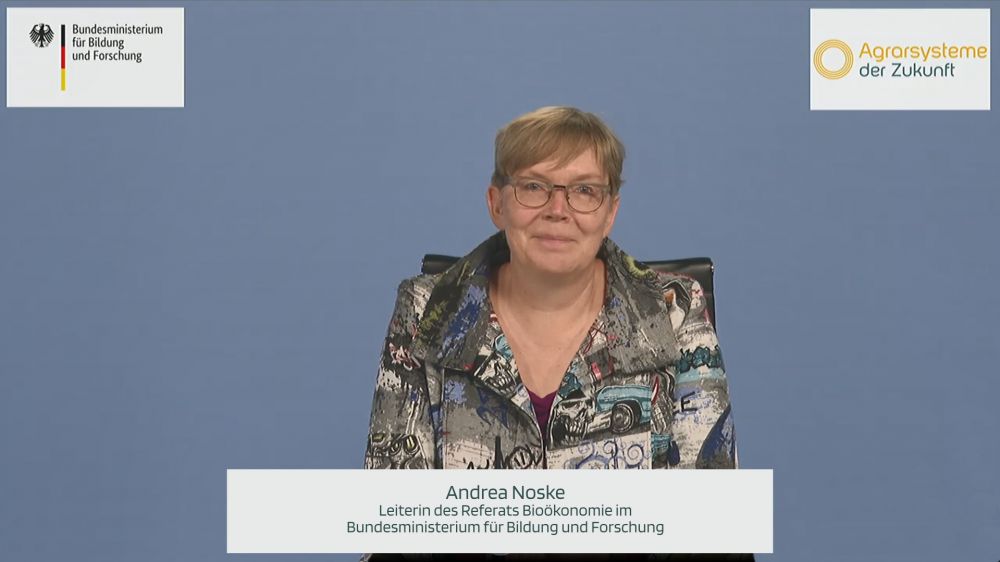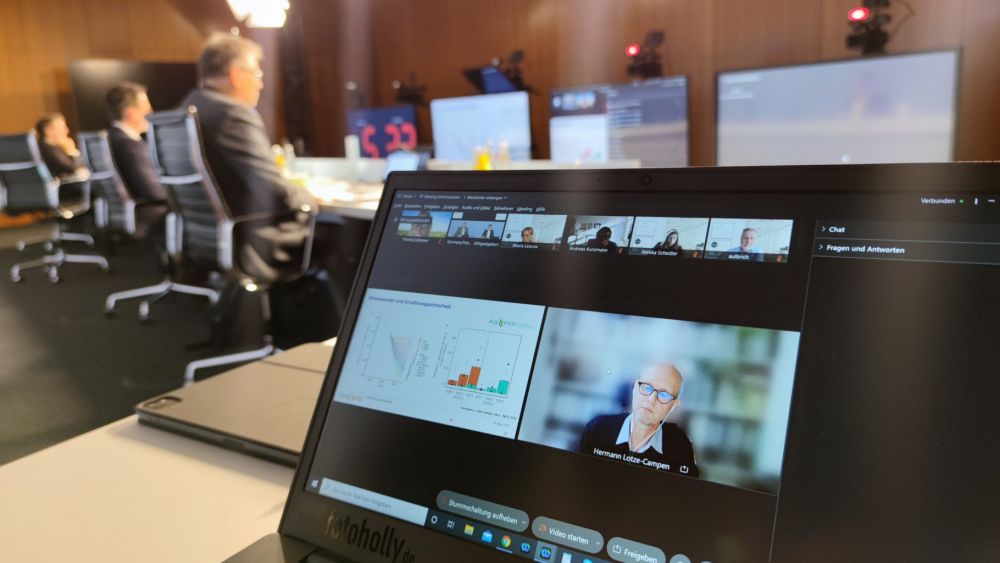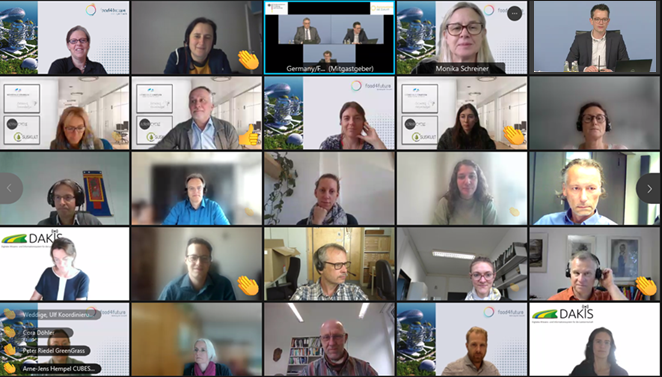Second Status Seminar of the »Agricultural Systems of the Future«
The eight consortia presented their research highlights.
08.10.2021
Sustainable design of agricultural production is one of the central challenges of the 21st century. In order to explore and test possible scenarios for an agricultural economy of the future, the German Federal Ministry of Education and Research has initiated the »Agricultural Systems of the Future« funding programme. The inter- and transdisciplinary consortia are dedicated to different ways of transforming the agriculture and developing innovative solutions.
After welcoming addresses by the head of the ministry's "Bioeconomy" department, Andrea Noske, Dr Eva Leiritz from Project Management Jülich (PtJ) and Prof Monika Schreiner (Coordination Office »Agricultural Systems of the Future«) the eight consortia presented their project progress and activities to representatives of the ministry, the PtJ and an international panel of experts.



